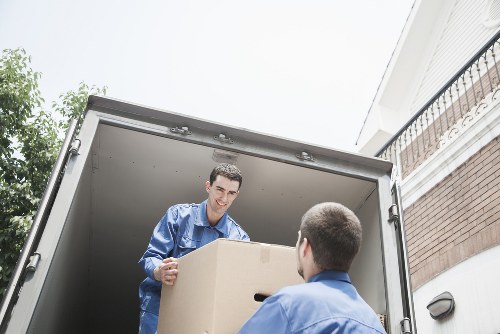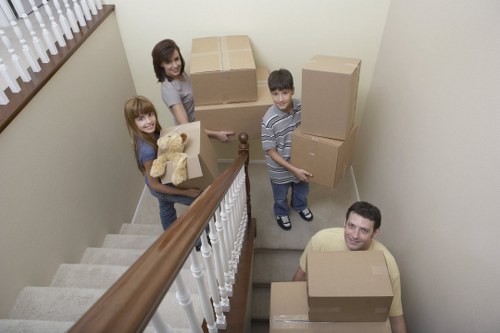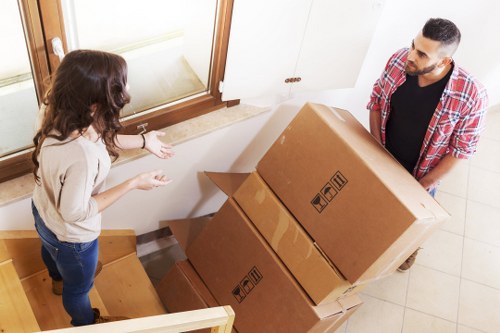White Goods Recycle Tring: A Comprehensive Guide

Recycling white goods is essential for maintaining a sustainable environment. In Tring, residents have various options to ensure their old appliances are disposed of responsibly. This guide explores the best practices, services, and local options for white goods recycling in Tring.
White goods, such as refrigerators, washing machines, and dishwashers, contain materials that can be recycled or safely disposed of. Proper recycling not only helps reduce waste but also conserves valuable resources.
Understanding the importance of recycling these large appliances is the first step towards making environmentally conscious decisions. Let’s delve into the benefits and methods available in Tring.
Why Recycle White Goods?

Recycling white goods has several environmental and economic benefits. It helps in reducing landfill waste, conserving natural resources, and decreasing energy consumption associated with manufacturing new products.
Moreover, many components of white goods, such as metals and plastics, can be reused or repurposed, contributing to a circular economy. Recycling also minimizes the emission of harmful substances like refrigerants and oils, protecting both the environment and public health.
In addition to environmental benefits, recycling can also offer financial incentives. Some recycling centers provide compensation for old appliances, making it a cost-effective solution for homeowners in Tring.
Types of White Goods Eligible for Recycling

Not all white goods are suitable for recycling. Typically, appliances like refrigerators, freezers, washing machines, dryers, dishwashers, and ovens can be recycled. It’s important to check the condition and type of appliance before opting for recycling.
Broken or non-functional appliances are ideal candidates for recycling. However, even functioning appliances can be recycled if they are being replaced or upgraded. Always ensure that appliances are cleaned and any hazardous substances are properly managed before recycling.
Specialized recycling services can handle various types of white goods, ensuring that each component is processed according to environmental standards. This approach maximizes the efficiency and effectiveness of the recycling process.
How to Recycle White Goods in Tring

Recycling white goods in Tring is straightforward with several local options available. Residents can choose from municipal recycling programs, private recycling companies, or charitable organizations that accept white goods.
- Municipal Recycling Centers: The Tring local council provides recycling services for large appliances. Visit the council’s website or contact them directly for information on collection schedules and drop-off points.
- Private Recycling Companies: Numerous companies in and around Tring specialize in white goods recycling. These businesses often offer pick-up services, making the process convenient for residents.
- Charitable Organizations: Some charities accept white goods in good working condition. Donating to these organizations can provide a second life for your appliances while supporting a good cause.
When recycling, it’s crucial to prepare your appliances properly. This includes disconnecting them from power sources, removing doors or panels if required, and ensuring that no personal data is left on electronic components.
Benefits of Choosing Local Recycling Services

Opting for local recycling services in Tring offers numerous advantages. It reduces transportation emissions, supports the local economy, and ensures compliance with regional recycling regulations.
Local services are also more likely to provide personalized support and flexibility in scheduling pick-ups or drop-offs. They are familiar with the specific recycling requirements of the area, ensuring that your appliances are handled correctly.
Additionally, local recycling businesses often collaborate with other community initiatives, promoting broader environmental sustainability efforts within Tring and its surrounding areas.
Environmental Impact of White Goods Recycling
Recycling white goods significantly lowers the environmental footprint associated with manufacturing new appliances. It reduces the need for raw materials extraction, lowers energy consumption, and minimizes greenhouse gas emissions.
By recycling, valuable materials like steel, aluminum, copper, and plastics are recovered and reused, which conserves natural resources and decreases the demand for new production. This process also helps in managing hazardous materials safely, preventing soil and water contamination.
Overall, the environmental impact of white goods recycling is profound, contributing to a more sustainable and eco-friendly community in Tring.
Local Regulations and Guidelines
Tring has specific regulations and guidelines for recycling white goods to ensure that the process is environmentally responsible and compliant with national standards.
Residents must adhere to guidelines regarding the proper disposal of appliances, especially those containing refrigerants and other hazardous materials. It’s important to consult local authorities or recycling providers to understand these regulations fully.
Failure to comply with recycling regulations can result in fines or environmental harm. Therefore, staying informed and following the established procedures is essential for all Tring residents involved in white goods recycling.
Cost-Effective Recycling Solutions
Recycling white goods in Tring can be affordable or even free, depending on the chosen service provider. Municipal recycling programs often offer free pick-up services for eligible appliances, while private companies may charge a nominal fee.
Some recycling centers provide incentives, such as discounts on new appliances when you recycle old ones. Additionally, donating to charities can be a cost-effective way to dispose of appliances while supporting community initiatives.
Comparing different recycling options can help homeowners find the most cost-effective solution that meets their needs while ensuring responsible disposal of their white goods.
Preparing Your White Goods for Recycling
Proper preparation of white goods is crucial for efficient recycling. This includes cleaning the appliance, removing all personal belongings, and disconnecting it from power sources.
For appliances with refrigerants, such as refrigerators and freezers, it’s important to ensure that these substances are safely removed by professionals to prevent environmental contamination.
Labeling and organizing components can also streamline the recycling process, making it easier for recycling providers to handle and process the appliance effectively.
Recycling vs. Upcycling: Making the Right Choice
While recycling involves breaking down an appliance into its raw materials, upcycling refers to repurposing the appliance or its components for new uses. Both methods contribute to waste reduction but serve different purposes.
Recycling is ideal for appliances that are no longer functional or contain hazardous materials. Upcycling, on the other hand, is suitable for appliances in good condition that can be refurbished or adapted for alternative uses.
Choosing between recycling and upcycling depends on the appliance’s condition and the desired outcome. Both approaches are beneficial and play a role in sustainable waste management in Tring.
Technological Advances in Recycling
The recycling industry is continuously evolving with advancements in technology that enhance the efficiency and effectiveness of white goods recycling. Modern recycling facilities in Tring utilize automated sorting systems, advanced material separation techniques, and eco-friendly processing methods.
Innovations such as robotic disassembly and improved waste-to-energy technologies are making recycling more efficient and reducing the environmental impact further.
Staying updated with these technological advancements ensures that Tring remains at the forefront of sustainable recycling practices, benefiting both the community and the environment.
The Future of White Goods Recycling in Tring
The future of white goods recycling in Tring looks promising with increasing awareness and support for sustainable practices. Community initiatives, governmental support, and technological innovations will drive the recycling efforts forward.
Educational programs and campaigns can further promote the importance of recycling among residents, encouraging more sustainable behaviors and participation in recycling programs.
As the demand for eco-friendly solutions grows, Tring is well-positioned to lead by example, implementing best practices and fostering a culture of environmental responsibility.
Challenges and Solutions
Despite the benefits, white goods recycling in Tring faces several challenges, including proper disposal of hazardous materials, public awareness, and logistical constraints.
Addressing these challenges requires a collaborative approach involving the community, local authorities, and recycling providers. Increasing public awareness through education and outreach programs can enhance participation rates.
Investing in better infrastructure and advanced recycling technologies can help overcome logistical issues, ensuring that appliances are processed efficiently and safely.
Local Recycling Centers in Tring and Surrounding Areas
Tring residents have access to several recycling centers and facilities that handle white goods efficiently. These centers are equipped with the necessary tools and expertise to manage various types of appliances.
By choosing local recycling centers, residents can ensure that their appliances are processed in an environmentally responsible manner, supporting the local economy and reducing transportation emissions.
Local Relevance: Nearby Areas to Tring
- Knebworth: Located just 4 miles from Tring, Knebworth offers recycling services that cater to white goods, ensuring convenient access for residents.
- Watton-at-Stone: Approximately 5 miles away, Watton-at-Stone provides both municipal and private recycling options for large appliances.
- Livingston Green: Only 3 miles from Tring, Livingston Green is home to several recycling providers specializing in white goods.
- Harpenden: 7 miles from Tring, Harpenden offers comprehensive recycling services, including pick-up and drop-off facilities.
- St Albans: Around 10 miles away, St Albans has multiple recycling centers equipped to handle various white goods.
- Radlett: Located 6 miles from Tring, Radlett boasts efficient recycling services with a focus on sustainability.
- Hemel Hempstead: 12 miles away, Hemel Hempstead provides extensive recycling infrastructure for large appliances.
- Croxley Green: Just 2 miles from Tring, Croxley Green offers prompt recycling solutions for white goods residents.
- Royston: 14 miles from Tring, Royston ensures that white goods recycling is accessible and environmentally sound.
- Hertford: Approximately 15 miles away, Hertford features advanced recycling facilities for all types of white goods.
Each of these nearby areas contributes uniquely to the white goods recycling ecosystem, providing residents with multiple options to dispose of their appliances responsibly.
Conclusion
Recycling white goods in Tring is a crucial aspect of maintaining environmental sustainability and promoting responsible waste management. With various local services, clear guidelines, and the support of the community, Tring residents can easily participate in recycling efforts.
By understanding the benefits, preparing appliances properly, and choosing the right recycling options, individuals can make a positive impact on the environment. Embracing recycling not only conserves resources but also fosters a healthier and more sustainable community.
As we move forward, continued collaboration and education will enhance white goods recycling in Tring, ensuring a greener future for all.
Frequently Asked Questions
- What are white goods?
White goods refer to large household appliances such as refrigerators, washing machines, dryers, dishwashers, and ovens. These appliances are typically finished in white enamel or similar materials.
- How can I recycle my old refrigerator in Tring?
You can recycle your old refrigerator by contacting local recycling centers, private recycling companies, or municipal recycling services in Tring. Ensure the appliance is cleaned and safely disconnected before collection.
- Is there a cost associated with recycling white goods in Tring?
Many recycling services in Tring offer free collection for eligible appliances. However, some private companies may charge a small fee. It’s best to check with the service provider for specific costs.
- Can I donate my working appliances instead of recycling?
Yes, donating working appliances to charitable organizations is a great way to extend their life and support those in need. Contact local charities in Tring to see if they accept such donations.
- What should I do if my appliance contains refrigerants?
If your appliance contains refrigerants, it’s important to have it handled by professionals to prevent environmental harm. Local recycling centers and certified recycling companies in Tring can manage the safe removal and disposal of these substances.